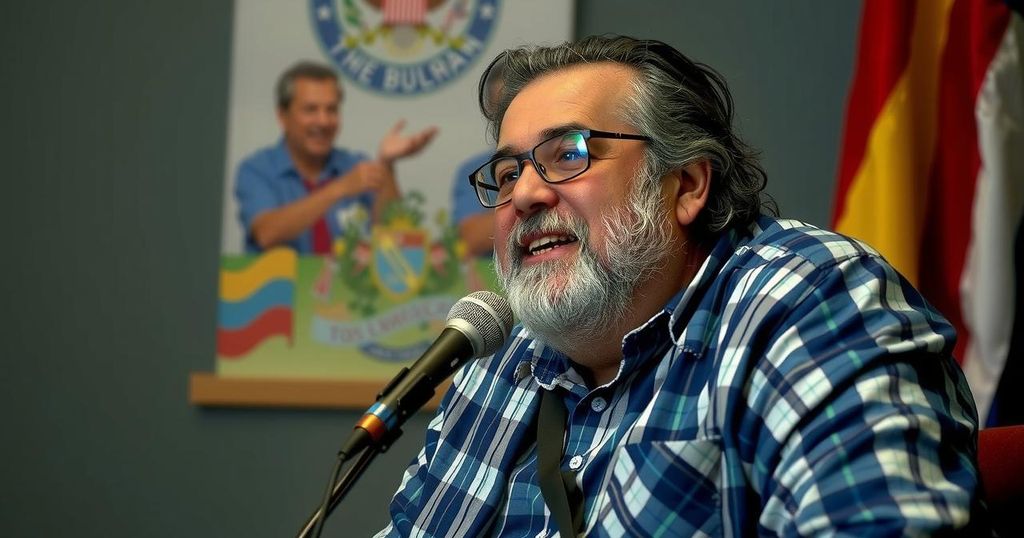Former Uruguayan President Jose Mujica criticized the regimes of Cuba, Venezuela, and Nicaragua for their failure to uphold genuine democratic principles, expressing disappointment in their electoral integrity. He distinguished between the models of governance in Cuba and other socialist countries like China and Vietnam, noting hypocrisy in international attitudes. His remarks reflect concerns about the ideological failures and authoritarian tendencies of these governments amidst a backdrop of political disillusionment in Latin America.
In a series of recent comments that gained traction on social media, former Uruguayan President Jose Mujica voiced his criticisms of the governments in Cuba, Venezuela, and Nicaragua. Mujica asserted that the political model in Cuba, characterized by a single-party system, was ineffective. He further lamented the hypocrisy in international relations, remarking, “But China does the same, Vietnam the same, and we say nothing. We’re hypocrites; we negotiate with them, and everything is fine.”
Additionally, he expressed indignation over the electoral practices in Venezuela and Nicaragua, accusing them of undermining the tenets of democracy by manipulating election outcomes. Mujica emphasized, “It infuriates me when they play at democracy, hold elections, and then, depending on the outcome, they manipulate or commit fraud. That makes no sense.” Although Mujica acknowledged his historical ties to the late Venezuelan leader Hugo Chavez, he differentiated him from Nicolas Maduro, asserting that Chavez displayed a degree of integrity by accepting electoral defeat.
Mujica’s reflections come in the wake of his failed plans to encourage Cuba towards economic openness alongside Brazilian President Lula da Silva. His recent assessments, however, were ignored in Cuban state media, signifying a disconnect. Mujica persistently advocates for the value of democracy amidst a backdrop of declining political environments in these nations, highlighting the problematic nature of their governance systems. He concluded that while Cuba committed to its ideological path, the other governments behave hypocritically in their democratic pretenses, stating, “They play at democracy, but when the results don’t go their way… well, it’s a joke.” Mujica’s observations, coupled with his enduring commitment to democratic principles, underscore his discontent with the trajectory of political ideologies in Latin America.
Despite his criticism, Mujica remains a communist ideologically, yet he acknowledges the practical failures associated with this governance style in various regions. Unlike Asian countries adopting market-oriented reforms, Cuba continues to uphold a failed socialist paradigm, leading to socio-economic ruin. Mujica’s insights reflect disappointment in a system he once espoused, illustrating the broader struggle for democracy and human rights across Latin America, a reminder of the need for accountability amidst enduring power dynamics.
Jose Mujica, a prominent figure in Latin American politics, served as President of Uruguay from 2010 to 2015 and has garnered respect for his principled stances on social justice and democracy. His recent remarks regarding Cuba, Venezuela, and Nicaragua reveal an ongoing concern for the integrity of governance in the region. These nations have faced scrutiny for authoritarian practices, particularly regarding election manipulation and the suppression of dissent. Mujica’s historical ties to leftist movements provide him with a unique perspective on these issues, as he grapples with the disillusionment of communism’s application in practice. His comments also highlight the complex relationship between ideology and the political realities facing Latin America today, particularly the discrepancies between socialist ideals and democratic accountability.
In summary, Jose Mujica’s recent critiques of the political situations in Cuba, Venezuela, and Nicaragua underscore a broader disillusionment with authoritarian practices masquerading as democratic governance. His observations reflect a longing for genuine democratic principles while simultaneously recognizing the challenges faced by those striving for a new model of governance in the region. Mujica’s insights call attention to the ongoing struggles surrounding democracy and human rights in Latin America, emphasizing the need for honest political discourse and accountability in leadership.
Original Source: havanatimes.org






